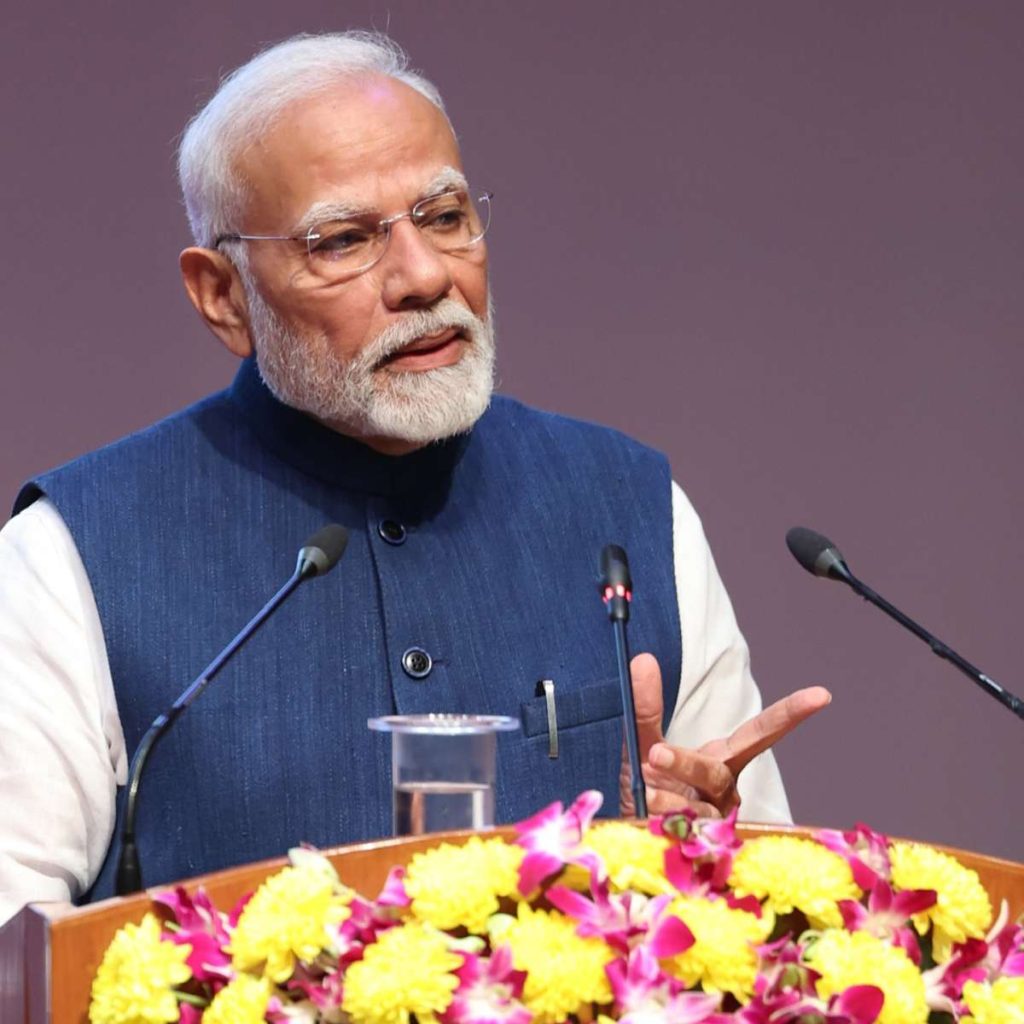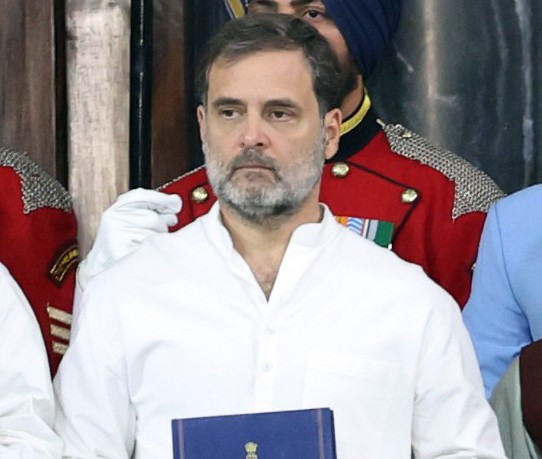Congress MP Manish Tewari emphasised the Constitution’s creation, noting India’s founders debated for three years to shape a covenant of equality, fraternity, and justice for all…reports Asian Lite News
Congress MP Manish Tewari stressed the need to “discuss, debate and dissect the successes and failures of the Constitutional project” as the nation observes the 75th anniversary of the adoption of the Indian Constitution on Tuesday.
In a post on X, Tewari said, “No celebration of the 75th anniversary of the adoption of the Indian Constitution would be complete till the Lok Sabha and Rajya Sabha don’t discuss, debate and dissect the successes and failures of the Constitutional project.”
Tewari also highlighted the efforts put into the making of the Constitution and said, “The founding fathers of modern India did not first, in 1947, move to raze building and raise buildings to announce the dawn of new freedom and a new covenant of equality and fraternity and justice for all Indians.”
“They instead chose to sit down, almost three hundred of the very best of them, for almost three long years, to debate and dissect and carve the most important book of contemporary India, the Constitution,” he added.
This year marks 75 years since the adoption of the Constitution, and the milestone will be celebrated with year-long activities under the campaign ‘Hamara Samvidhan, Hamara Swabhiman’, aimed at highlighting the significant contributions of BR Ambedkar in shaping the Constitution, as per a Ministry of Law and Justice release
According to the release, the year-long “Hamara Samvidhan, Hamara Swabhiman” campaign began with its first regional event in Bikaner, inaugurated by Chief Justice DY Chandrachud in March 2024.
Subsequent regional events have been held in Bikaner, Prayagraj, and Guwahati, with a focus on engaging diverse communities, especially in the Northeast, to promote an understanding of the Constitution across India, the release mentioned.
The Indian Constitution, adopted on November 26, 1949, and coming into effect on January 26, 1950, serves as the foundational document defining India’s democratic, secular, and egalitarian framework, the Ministry of Law and Justice release stated.
Over the past seven decades, the Constitution has guided the nation through political, social, and economic transformations, upholding justice, liberty, equality, and fraternity–the core principles of India’s governance. These values are celebrated annually on Samvidhan Diwas or Constitution Day, it added.
On Monday, Lok Sabha Speaker Om Birla urged all the members of the lower House of Parliament to follow the highest traditions of debate and dialogue and convey their dissent in a constructive manner.
At the Business Advisory Committee (BAC) meeting, Speaker Birla referred to 75 years of adoption of the Constitution and recalled the glorious traditions of high-quality debates by the founding fathers in the constituent assembly.
In view of the Samvidhan Diwas celebrations in Samvidhan Sadan, the Speaker urged the members of various political parties to engage in a meaningful dialogue. He urged the members to convey their dissent in a constructive manner.
He said that members should avoid ruckus in the House in the name of protest.
Lok Sabha and Rajya Sabha were adjourned earlier today for the day over impasse on oppositon’s demands. Both Houses will now meet on Wednesday.
Earlier during his customary address ahead of the start of the the Parliament session, Prime Minister Narendra Modi hit out at the opposition, saying those who were rejected by people 80-90 times were trying to control Parliament by resorting to hooliganism for their own political gains.
“Unfortunately, some people, who have been rejected by the public, are constantly trying to control the parliament for their own political interests through the hooliganism of the people. The public remembers their activities and punishes them when the time comes,” PM Modi said.

PM pitches on nation first to keep statute alive
Prime Minister Narendra Modi on Tuesday celebrated the Constitution as a “guiding light” during India’s transformative phase, emphasizing his government’s commitment to upholding its values through welfare measures promoting social and financial equality. Speaking at the Supreme Court on Constitution Day, he described the Constitution as a “living stream” that has adapted to the nation’s changing needs, including challenges like the Emergency, and continues to inspire progress.
Paying homage to the victims of the 2008 Mumbai terror attacks, Modi reiterated India’s resolve to counter terrorism decisively. Reflecting on Rajendra Prasad’s concluding address to the Constituent Assembly, he emphasized the importance of honest leadership prioritizing national interests to sustain the Constitution for future generations.
Modi highlighted the full implementation of the Constitution in Jammu and Kashmir, marking its first Constitution Day celebration in the region. He lauded the foresight of India’s Constitution-makers, who created a dynamic framework to address evolving aspirations and challenges, ensuring the document remains relevant.
The prime minister underscored his government’s welfare initiatives as steps toward the constitutional vision of equality and justice. These included opening over 53 crore bank accounts, providing homes for four crore families, distributing cooking gas to women, and introducing health insurance for the underprivileged. He noted that these measures reflect the Constitution’s essence and the goal of building a developed India.
In lighter remarks, Modi referred to his adherence to constitutional boundaries, subtly addressing critiques, including comments by opposition MP Kapil Sibal earlier in the event. Modi reaffirmed the importance of staying within the constitutional framework while contributing to national progress.
Chief Justice of India Sanjiv Khanna, Law Minister Arjun Ram Meghwal, and Bar Council of India chairman Manan Kumar Mishra also spoke at the event. Mishra, a BJP MP, praised Modi and countered critics who claimed the government’s actions deviated from constitutional principles.
Highlighting judicial reforms, Modi announced the shift from a punishment-based system to a justice-oriented approach and referenced the recently passed women’s reservation law as a milestone. He also recalled the Constitution’s original illustrations of figures like Lord Ram, Sita, and Buddha, which he said symbolized timeless human values and the guiding ethos of the nation.
ALSO READ: India Presses Dhaka on Hindu Priest Case

